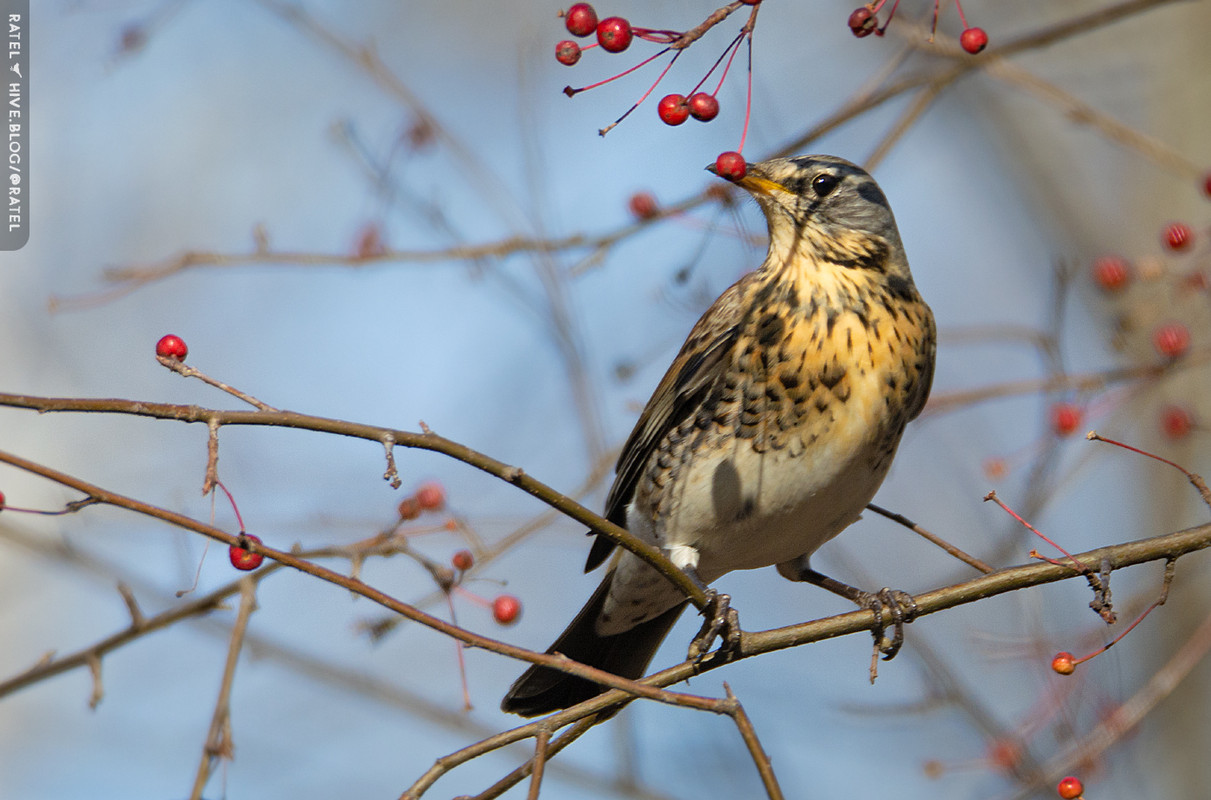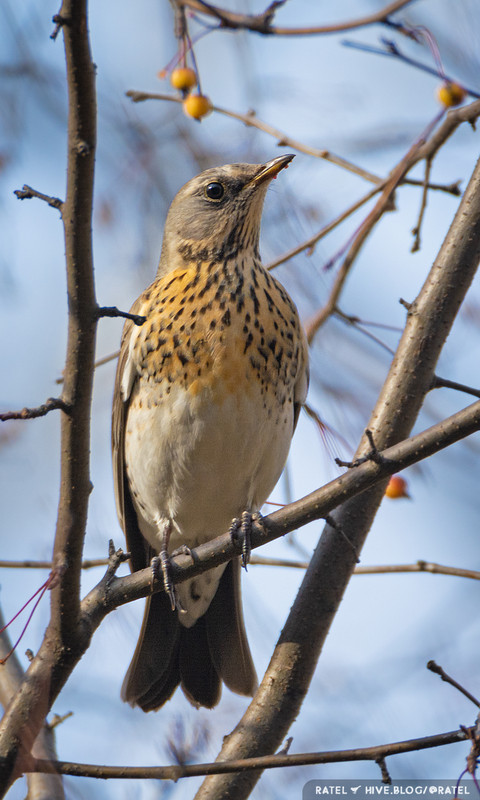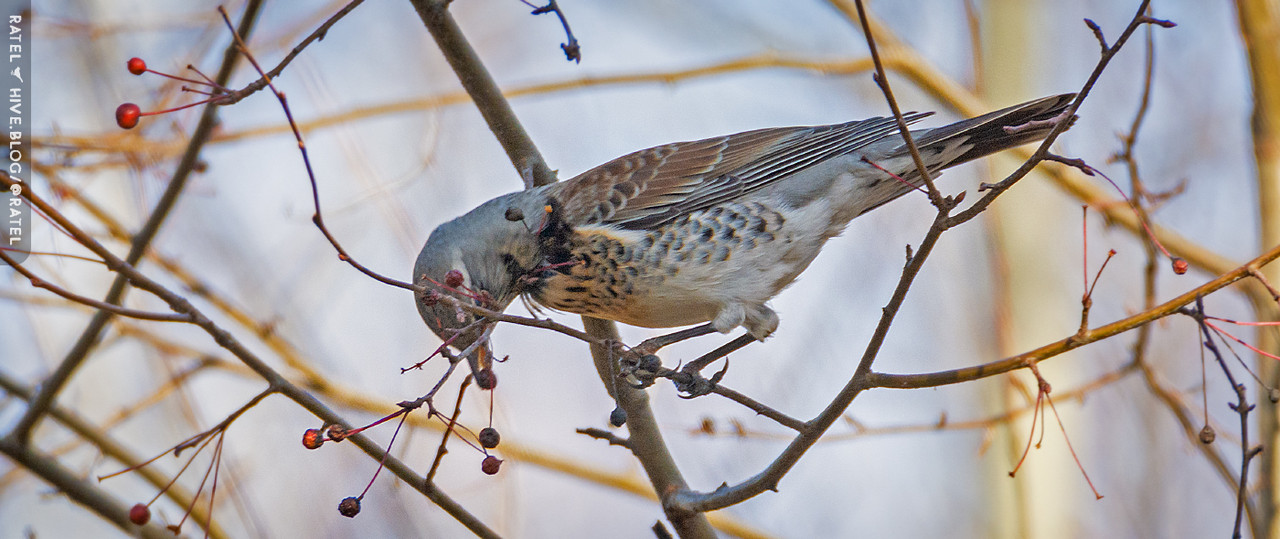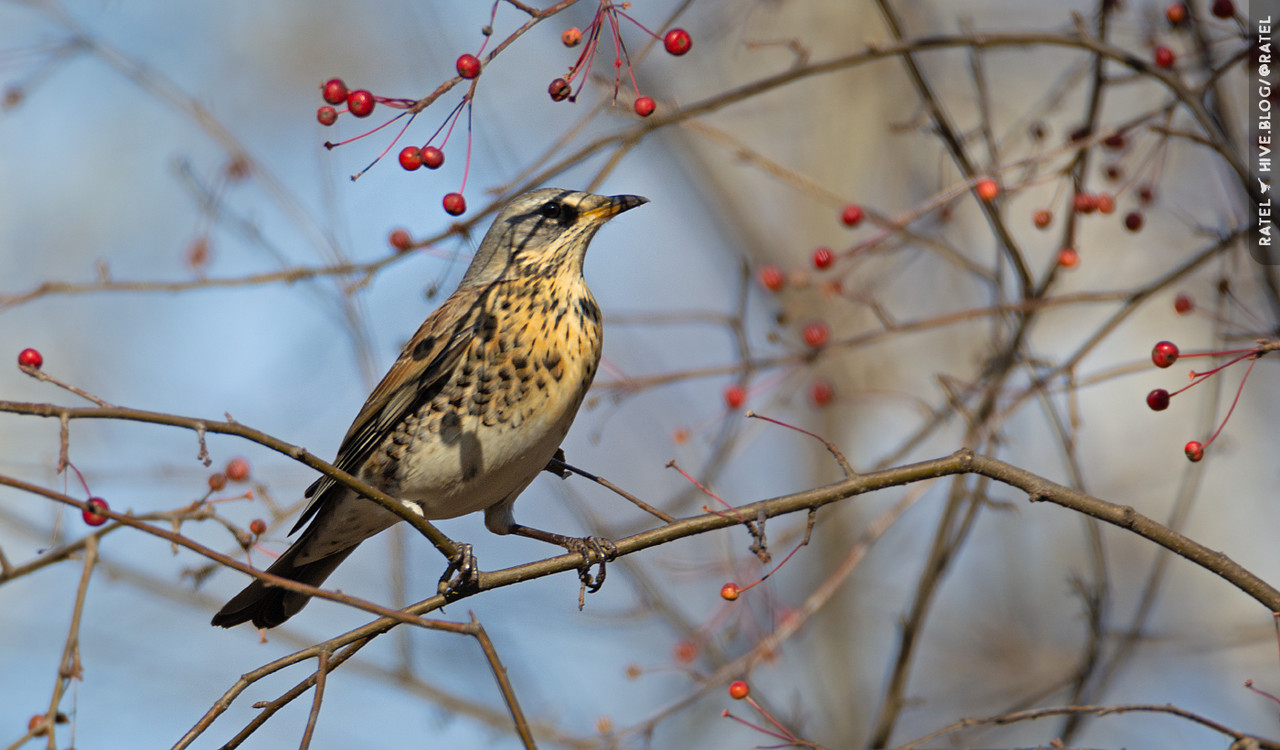
🦉 The fieldfare (Turdus pilaris)
- Turdus (lat) - Thrush
- pilaris the etymology is mysterious, although it is now believed that pilaris in later Latin means simply thrush (Jobling, 2017). However, since lat. "pilus" hair, pilare to remove hair, but pila ball, pilaris anything related to ball, and pilarius is a juggler (and at the same time, the Greek "trikhos" is hair, and "trikhas" is a thrush!), all this puzzling. Two assumptions arise. First: when the fieldfare in summer, how usually pulls earthworms out of the ground, this can be associated with hair removal (pilare). Second: when in autumn and winter the fieldberry picks rowan berries and throws them up, swallows, it may resemble a juggler (pilarius).

These birds are a very interesting example of how birds' behavior changes depending on the season. It's worth starting with the fact that these birds are sedentary, wintering. But winters in my region are almost always cold, so they fly away to where it's warmer within the country. And they return at the beginning of April, when the snow has already melted.

At this time, they have a mating season. And it is at this time that these birds can be said to be brave, they can walk next to you, do their business, and even attack if you enter their territory where their nests are. But with the arrival of summer, these birds seem to disappear from the forests, they are not heard. And even if you see them and try to go in their direction, they will timidly fly away. And in the fall, you can catch them on the rowan bushes, where you can admire them while they feast on berries.

| Camera | Lens |
|---|---|
| Nikon D5200 | Tamron SP AF 150-600mm f/5-6.3 Di VC USD |